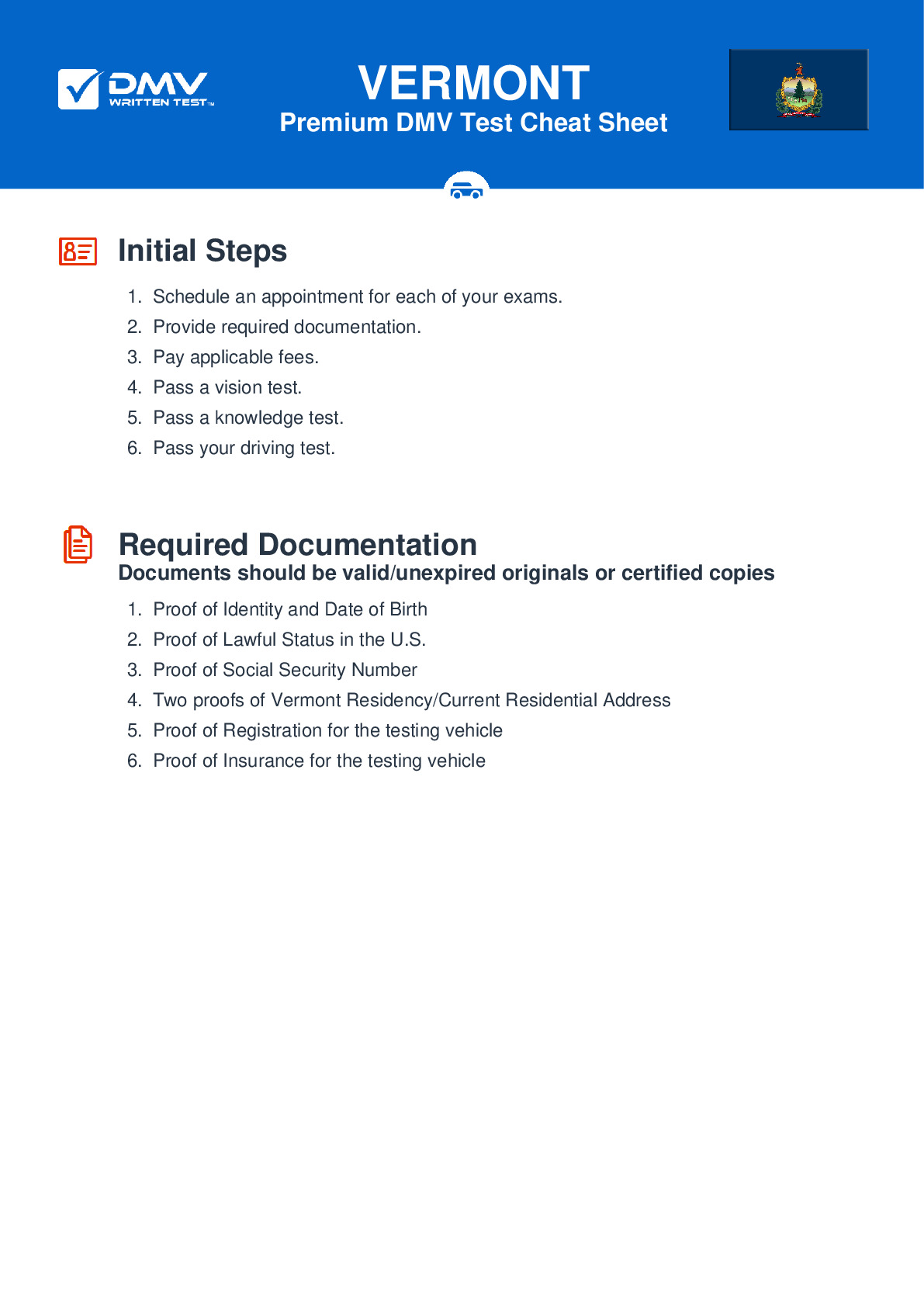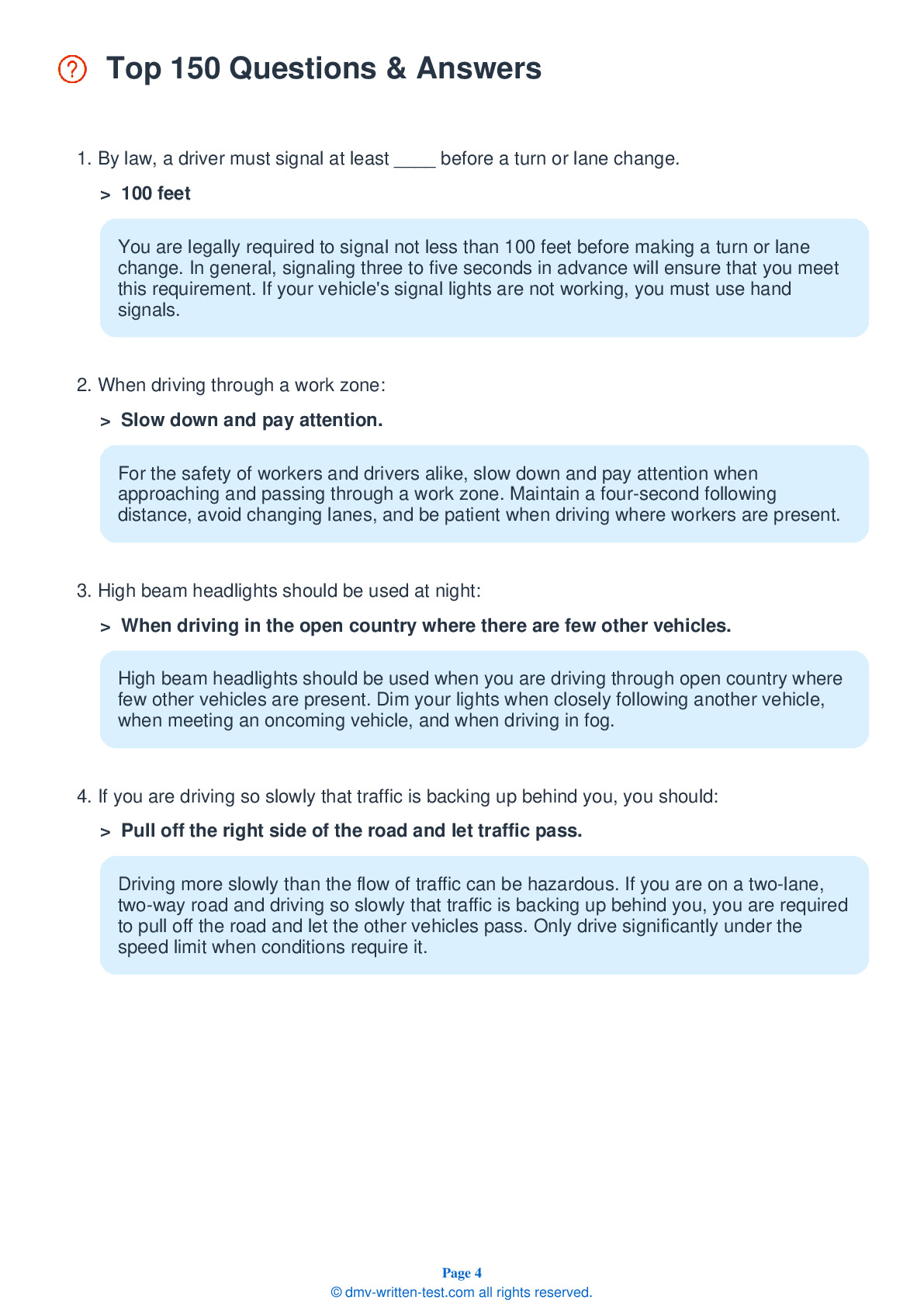2026 Vermont Permit Test 10
The following questions are from real DMV written tests. These are some of the actual permit questions you will face in Vermont. Each permit practice test question has three answer choices. Select one answer for each question and select "grade this section." You can find this button at the bottom of the drivers license quiz. For a complete list of questions and answers for Vermont please visit https://cheat-sheets.dmv-written-test.com/en/vermont/car.
Number of Tests
Number of Question
Passing Score
14. Crossbuck signs indicate:
Explanation
Crossbuck signs tell drivers to yield to trains at a railroad crossing. Drivers should not try to outdrive a train.
15. Double solid yellow lines painted down the middle of the road mean:
Explanation
Double solid yellow lines in the center of the road mean that passing is not allowed from either direction. You may not cross the lines unless you are making a left turn or passing pedestrians, bicyclists, and riders of scooters or skateboards when the opposite lane is clear and you can pass safely.
16. After stopping for a school bus that is unloading children:
Explanation
After stopping for a school bus that has its stop arm extended and its lights flashing, watch for children walking along the side of the road. You should always drive with caution when driving near children.
17. A solid yellow line on your side of the centerline means:
Explanation
A solid yellow line next to your lane means that passing is not permitted from your direction.
18. You come to an intersection that is blocked by other traffic. You should:
Explanation
You cannot enter an intersection if traffic is backed up on the other side and you cannot get completely through the intersection. Wait until traffic ahead clears so you do not block the intersection.
19. When driving on slippery roads, you should:
Explanation
On slippery roads, you should increase your following distance. It may take more time to stop your vehicle than it would under normal conditions.
20. The “No zone” is:
Explanation




